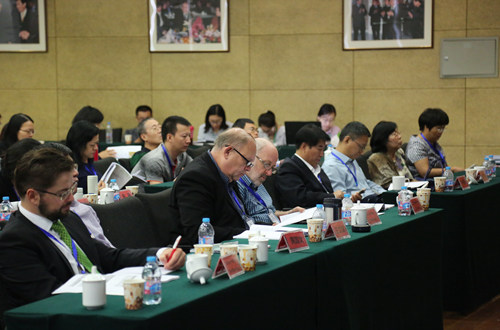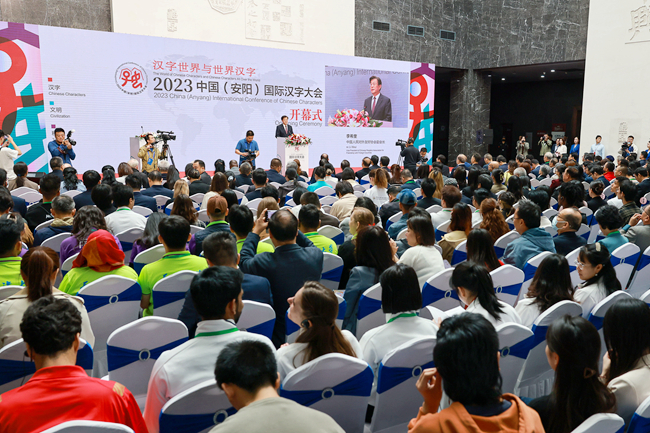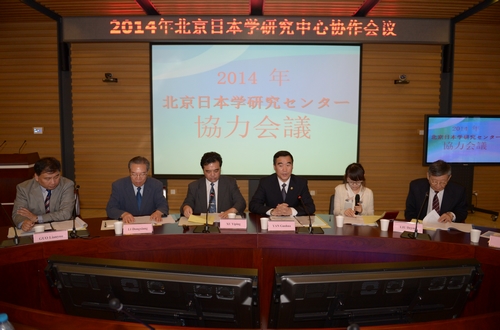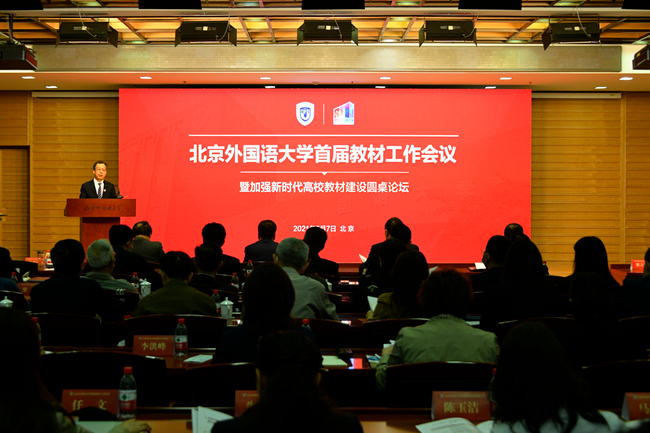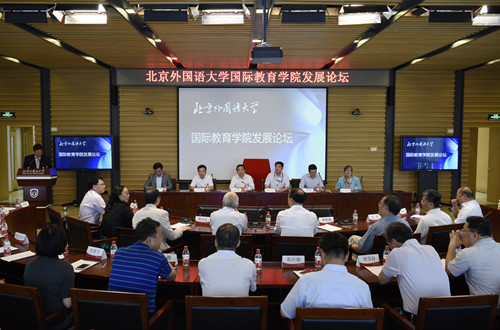The 2nd International Ecological Linguistics Seminar And The 19th Nineteenth Functional Linguistics And Language Analysis Forum Were Held In Our School
The 2nd International Ecological Linguistics Seminar And The 19th Nineteenth Functional Linguistics And Language Analysis Forum Were Held In Our School
From August 26th to 27th, the 2nd International Ecological Linguistics Seminar and the 19th Functional Linguistics and Language Analysis Forum were held at the International Conference Center of Foreign Research Society. The meeting was hosted by the International Society of Ecological Linguistics of the International Ecological Linguistics Society. ), Of World (), (), () and
From August 26th to 27th, the 2nd International Ecological Linguistics Seminar and the 19th Functional Linguistics and Language Analysis Forum were held at the International Conference Center of Foreign Research Society. The meeting was hosted by the International Society of Ecological Linguistics of the International Ecological Linguistics Society. ), Of World (), (), () and "Chinese Foreign Language" co -organized. More than 200 participants conducted reports and discussions on topics such as ecological linguistics theory, ecological linguistics and functional linguistics disciplines, ecological discourse analysis, and teaching and translation under the perspective of ecological linguistics.
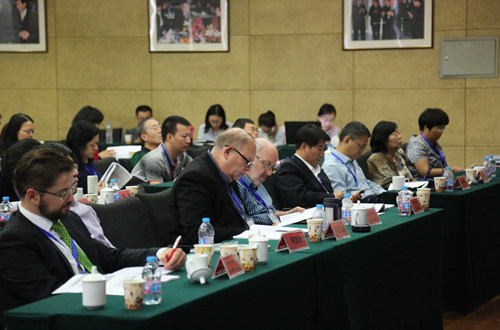
In terms of the development of ecological linguistics, associate Professor Arran University of the University of Gruist, the University of Gruist, overlined the construction and development of the discipline of ecological linguistics from a macro level. It is believed that the current academic community's attention to ecological issues is getting higher and higher, so a large number of cross -disciplinary disciplines have emerged, such as ecological criticism, ecological psychology, ecological feminism, and ecological sociology. In this conference speech, he mainly introduced the relationship between ecological and linguistic disciplines. He believes that all linguistics disciplines, as long as human and human society are put into a larger ecosystem to think, they all have the disciplines of ecological linguistics. Contribution.
In terms of the expansion of the field of ecological linguistics, Associate Professor of the University of South Danish University of South Denmark explored the new direction of the development of ecological linguistics and pointed out that the current development of ecological linguistics has two major directions. Spiritual field. It is pointed out that if you want to understand the interaction between humans and other creatures and natural environment, ecological linguistics not only needs to explore the sense of belonging, human and universe, and the profound significance of life, but also to explore human alienation, alienation, Anxiety and despair.
In terms of the localization of ecological linguistics research, Professor Huang Guowen, South China Agricultural University, proposed that the research of ecological linguistics cannot be separated from researchers' values and discussions on cultural values. Ecological discourse analysis needs to be combined with local culture; Culture, he put forward the view of "harmonious discourse analysis" in the context of China.
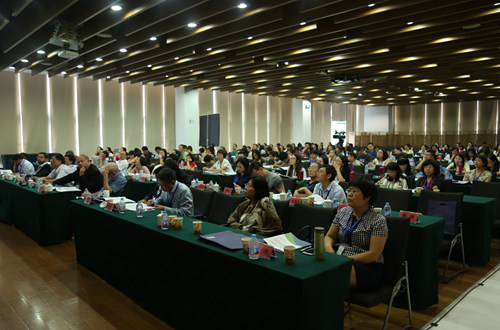
In terms of the practice of ecological discourse analysis, professors of Hong Kong Lingnan University compared the system functional language methods and analyzed environmental report texts and poetry, and found that the status of naturally in the two languages was very different. A kind of resource used, and in poetry is a person, speaker, and experience. It is pointed out that the ecological analysis of poetry is a kind of ecological and physical analysis, highlighting the beneficialness of ecological protection such as poetry and other literature.
In terms of ecological linguistics and teaching research, Professor Wang Wenbin of Beijing University of Foreign Languages discussed the macro structure of foreign language education in the perspective of ecological linguistics and the internal connection between various ingredients. Together with the research fields such as the two language acquisition, the development of foreign language teaching, the development of foreign language teachers, the setting of foreign language curriculum, the foreign language test, the foreign language teaching method, the history of foreign language education, and the establishment of the discipline of foreign language education to improve the ability of Chinese foreign language and foreign language education to efficiently improve the ability of Chinese foreign language and foreign language education capabilities Essence
In terms of the relationship between biological ecology and language behavior, professors of the University of South Denmark pointed out that language behavior is part of human activities. The world we live in is both related to nature and at the same time develop in language behavior. He believes that ecological linguistics can awaken the consciousness of the nature of biological survival, so as to put forward that humans and nature are intertwined and need to maintain survival together.
In terms of theoretical construction of ecological discourse analysis, Professor He Wei of Beijing University of Foreign Languages pointed out that ecological discourse analysis needs to be guided by the ecological philosophy of ecosystem development, and the theoretical framework of operable discourse analysis is required. On the basis of explaining the ecological philosophy of Confucianism, Buddhism and Taoism, she has expanded multi -dimensional expansion of the venue view proposed by the Western academic community, and combined with the three major meta -functional theory of system functional linguistics, it built a harmonious and unified ecology of man and nature. The discourse analysis framework, this framework can distinguish ecological beneficial discourse, ecological vague sexual discourse and ecological destructive discourse.
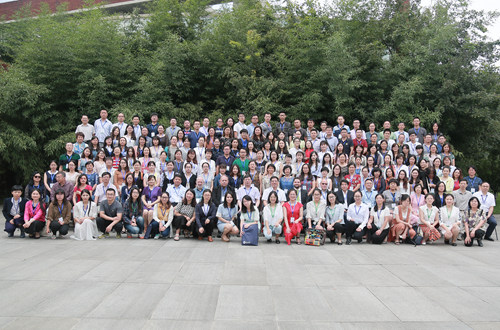
China Social Sciences Network reported on this meeting.
Report link:
(China Foreign Language and Education Research Center, Xu Guozhang Language Higher Research Institute)

